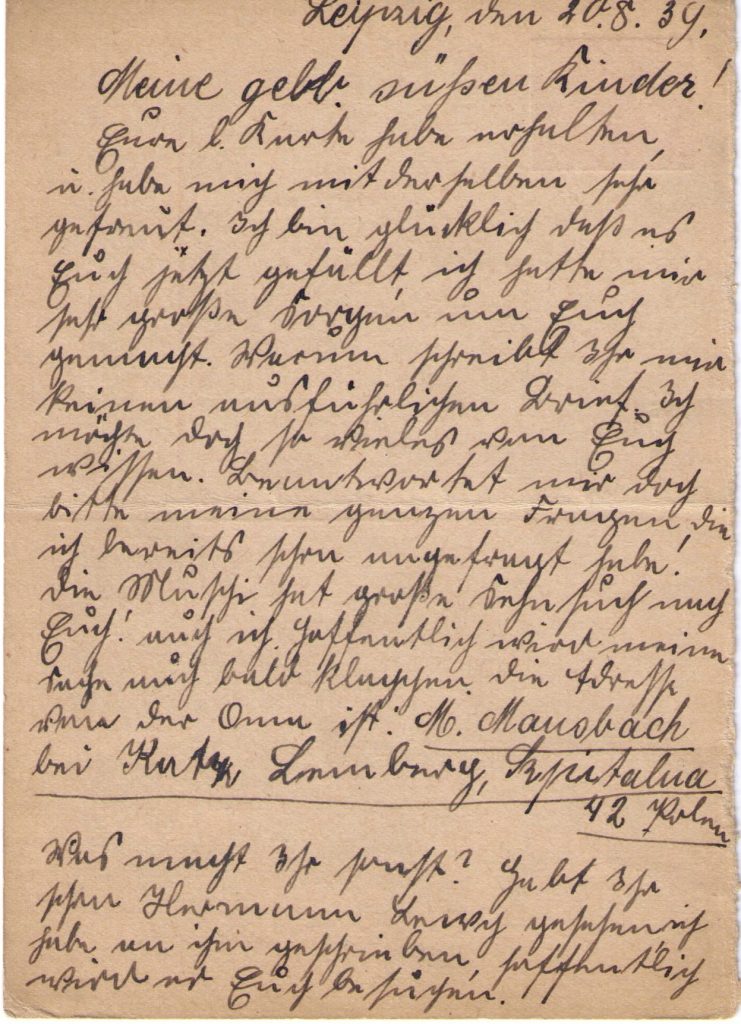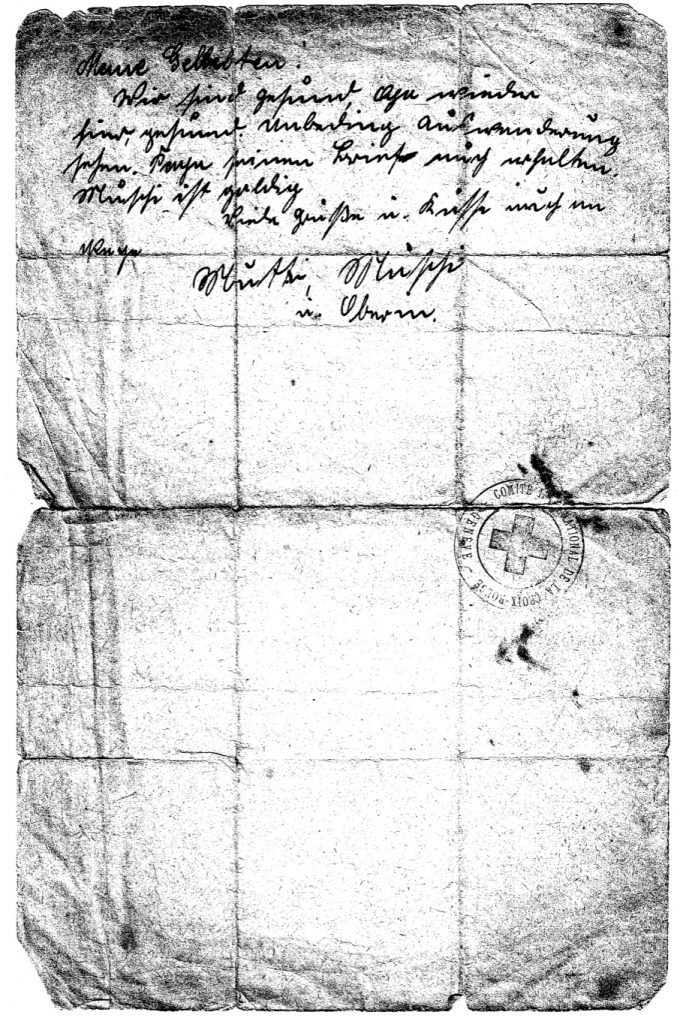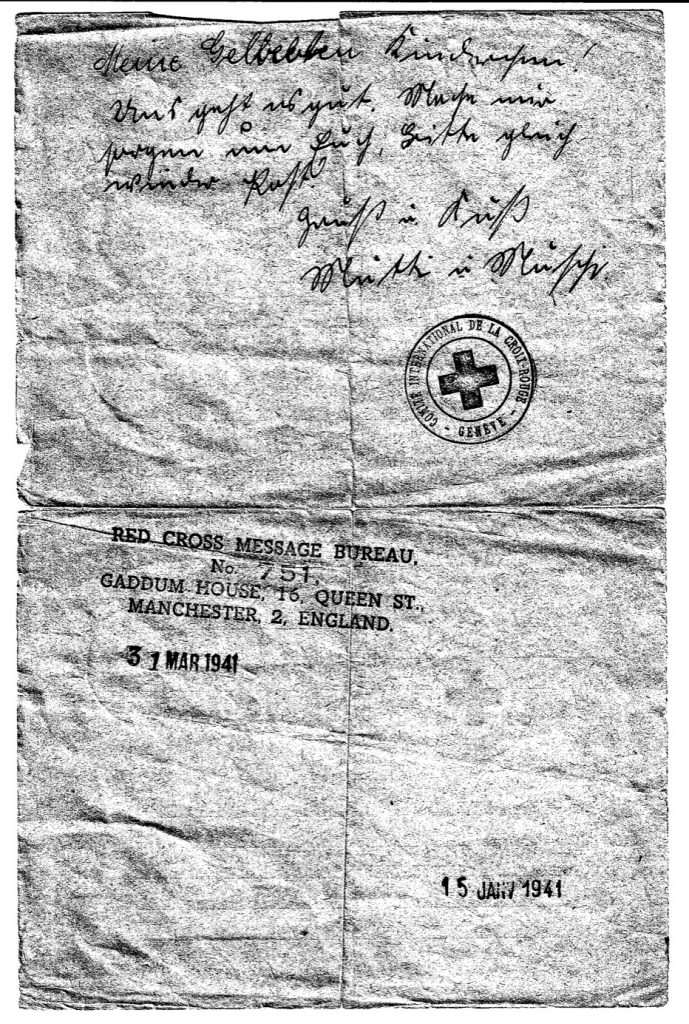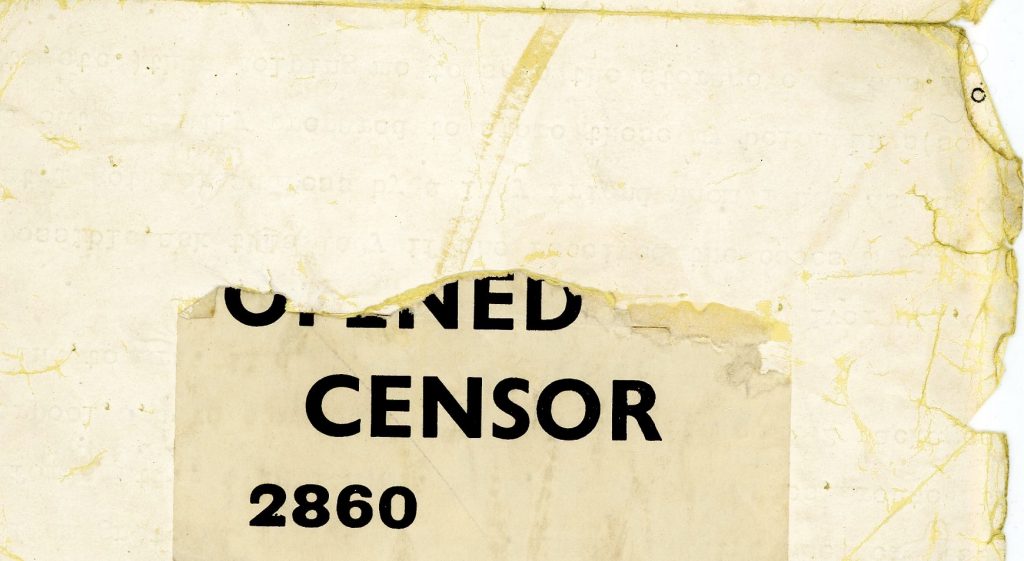One of our Kitchener descendants wrote to me this morning with a question about – and a description of – postal services during the war, between Germany (and the occupied territories) and Britain.
"When my parents were in Germany and I was in England, the only communication we had was through the Red Cross in Israel. We got a code from the Red Cross and they wrote to us 25 words and we sorted out the words, the meaning. And then it took about 6 months and then we returned the answer and they were also allowed 25 words."
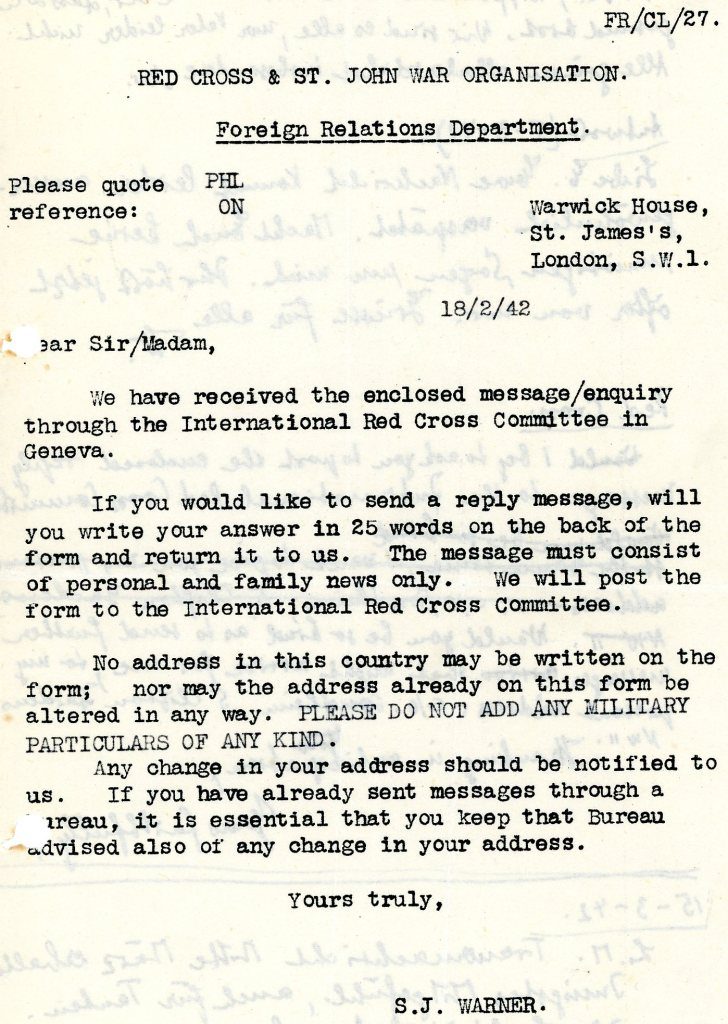
The descendant also referred to an article that mentions letters being sent every six months from the National Socialist camps; another descendant confirms this was the case in their own family materials; and another confirms that short letters were sent from within a National Socialist ghetto in Poland to Germany (although not out of the Reich territories, as far as the family knows).
This issue of letters and other communications during the war is one I have long been fascinated by, although it didn’t occur to me, for some reason, that other people would be especially interested.
I know many families don’t have very much by way of materials, but if you do have letters and/or postcards from Germany to Britain (or other destinations), perhaps you could take a look at the postmarks and dates, whether there are any clues about how they were sent (there were a number of ‘secret addresses’ in Portugal, for example, and Thomas Cook was also used as a form of courier for these purposes), and whether any codes are used – false names, for instance, which we have in our own family correspondence.
I am going to write up some notes about the issue of communication in relation to Kitchener camp, but it would be good to have input from descendants about specific instances, if we can find any. Some of you may have examples of the Red Cross letters, from once war had broken out; some may have long puzzled over why a letter was addressed via Portugal!
Update
Families have kindly started to send in examples of post/mail – and the images that follow give very clear examples of how communications between the country of origin (here, the letters are sent from the city of Leipzig, Germany to Manchester) and Britain shrank when war broke out.
Many thanks to Judith Elam for sending in these examples from her family collection.
She writes: “In response to your post re letters and postmarks, I am attaching various letters written by my aunt, mother and grandmother, all sent through the Red Cross. My mum and one sister got out on the Kindertransport from Leipzig to England, and my grandmother was trapped behind with her youngest daughter and father-in-law, all of whom were murdered.”
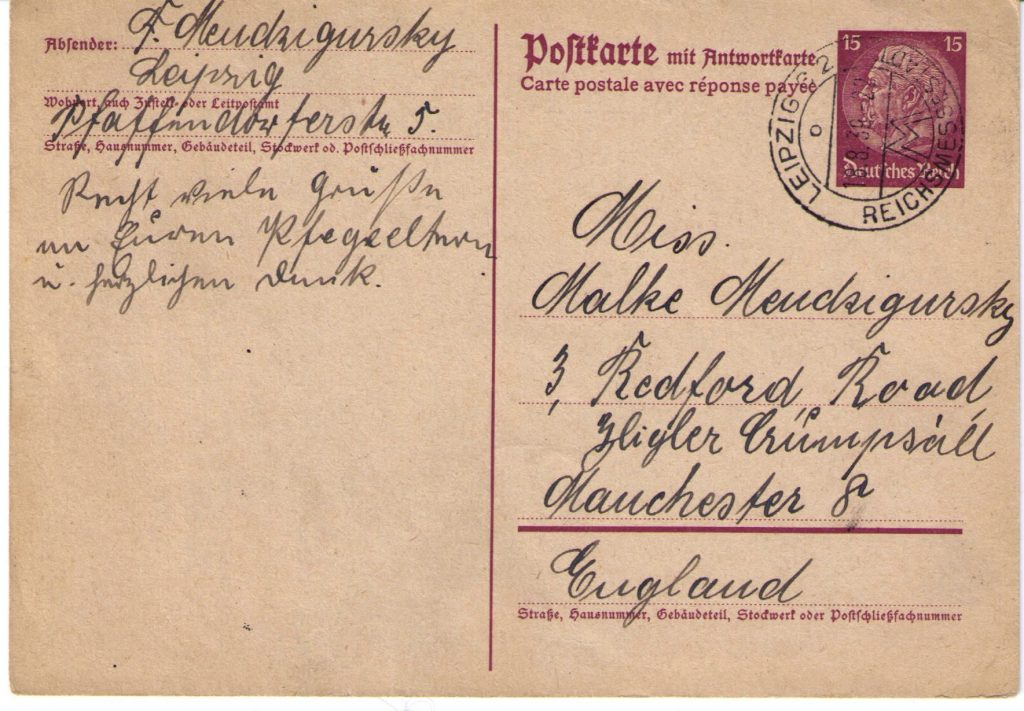
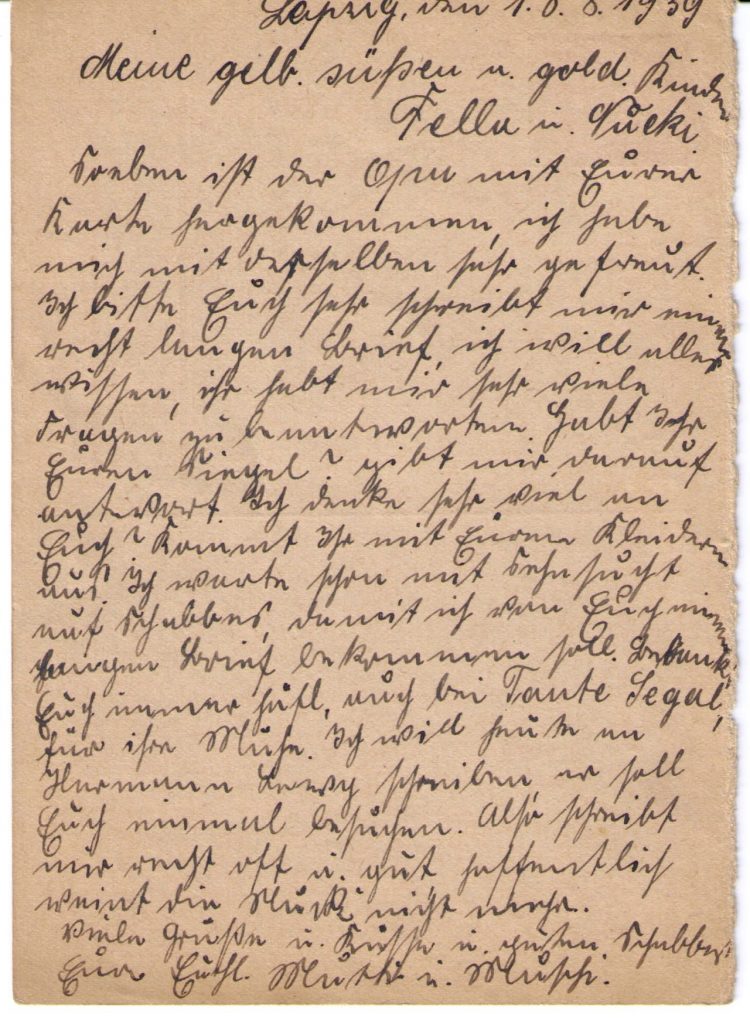
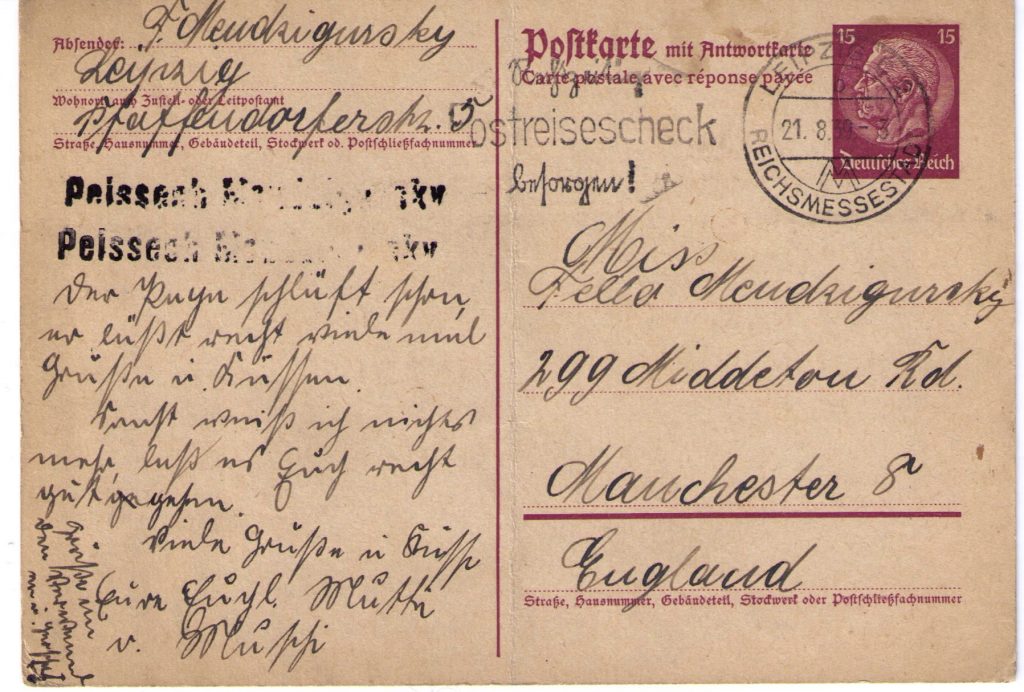
Somehow, some years ago, I formed in my mind a picture of a vast warehouse with all the letters that went missing in this context during the war. From time to time, I still imagine standing in the doorway of that place, looking in.
So many letters went missing just among our own family members: there must have been thousands upon thousands – somewhere …
I’ll leave it with you for now – and please do let me know if you have anything you think might help us to write up some notes on this subject.
It’s not the letters themselves, which I know many feel are very personal items – it’s the use of codes, of various addresses, and the secret means by which communications were sent – that’s what I am hoping to write about here.
As ever – many thanks.
Dr Clare Weissenberg, Designer and Editor, The Kitchener camp project

